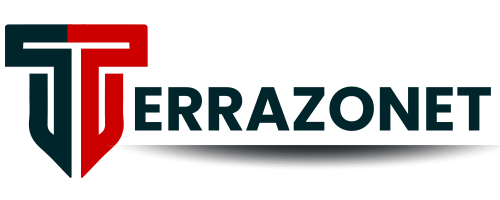How Modern Homes Are Becoming Smarter and More Efficient
The way we heat and cool our homes is changing dramatically. Smart HVAC technology is revolutionizing how homeowners manage their indoor comfort while saving money and energy. These advanced systems combine traditional heating and cooling with cutting-edge digital features that learn your habits and optimize performance automatically.
Gone are the days when you had to manually adjust your thermostat throughout the day or worry about wasting energy when nobody’s home. Today’s smart systems can detect when you’re away, adjust temperatures based on weather forecasts, and even alert you to potential problems before they become expensive repairs.
What Makes HVAC Systems “Smart”
Smart HVAC technology goes far beyond programmable thermostats. These systems use internet connectivity, advanced sensors, and artificial intelligence to create a truly intelligent home climate control experience.
The heart of any smart system is the connected thermostat. These devices can be controlled remotely through smartphone apps, allowing you to adjust your home’s temperature from anywhere in the world. But that’s just the beginning of what these systems can do.
Modern smart systems include features like occupancy sensors that detect when rooms are empty, outdoor weather sensors that anticipate temperature changes, and integration with other smart home devices. Some systems can even connect to your calendar to know when you’ll be home or away for extended periods.
Energy Efficiency Benefits That Actually Matter
One of the biggest advantages of smart HVAC technology is its ability to dramatically reduce energy consumption. Traditional systems often heat or cool empty homes for hours, wasting significant amounts of energy and money.
Smart systems solve this problem through intelligent scheduling and automatic adjustments. They can lower temperatures when you’re sleeping or away, then bring your home back to comfortable levels just before you return. Studies show that homeowners can save 10-15% on their heating and cooling costs with proper smart system use.
These systems also provide detailed energy usage reports, helping you understand exactly how and when you use the most energy. This information empowers you to make informed decisions about your home’s comfort settings and identify opportunities for additional savings.
Remote Control and Monitoring Capabilities
The convenience factor of smart HVAC technology cannot be overstated. Imagine being able to adjust your home’s temperature while you’re still at the office, ensuring you walk into a perfectly comfortable house every day.
Remote monitoring goes beyond just temperature control. Many systems can track humidity levels, air quality, and even detect unusual patterns that might indicate equipment problems. Some advanced systems send push notifications to your phone if they detect issues like sudden temperature spikes or unusual energy consumption.
This level of monitoring provides peace of mind, especially for homeowners who travel frequently or own vacation properties. You can ensure your home maintains safe temperatures even when you’re thousands of miles away.
Learning Algorithms That Adapt to Your Lifestyle
Perhaps the most impressive feature of modern smart HVAC technology is its ability to learn and adapt. These systems use machine learning algorithms to understand your daily routines and preferences, then automatically adjust to match your lifestyle.
Over time, your system learns when you typically wake up, when you leave for work, and when you return home. It starts making these adjustments automatically, so you rarely need to manually change settings. The system might notice that you prefer slightly cooler temperatures on weekends or that you like the house warmer in the morning during winter months.
This adaptive capability means your system becomes more efficient and convenient the longer you use it. The artificial intelligence continuously refines its understanding of your preferences, creating a truly personalized comfort experience.
Integration with Smart Home Ecosystems
Smart HVAC technology doesn’t operate in isolation. These systems are designed to work seamlessly with other smart home devices, creating a comprehensive automation ecosystem that enhances both comfort and efficiency.
Integration with smart blinds allows your system to factor in sunlight when determining cooling needs. Connection with smart lighting systems can help detect occupancy patterns. Some systems even work with smart water heaters to coordinate energy usage and avoid peak demand charges.
Voice control through devices like Amazon Alexa or Google Home adds another layer of convenience. You can simply say “set temperature to 72 degrees” or “turn on vacation mode” without reaching for your phone or walking to a thermostat.
Predictive Maintenance and Problem Prevention
Traditional HVAC systems often fail without warning, leaving homeowners with expensive emergency repairs and uncomfortable living conditions. Smart HVAC technology changes this dynamic through predictive maintenance capabilities.
These systems continuously monitor equipment performance, tracking metrics like runtime patterns, temperature variations, and energy consumption. When the system detects unusual patterns that might indicate developing problems, it can alert you before a complete breakdown occurs.
Early warning notifications might alert you to dirty filters, potential refrigerant leaks, or components that are showing signs of wear. This proactive approach helps you schedule maintenance at convenient times rather than dealing with emergency breakdowns during extreme weather.
Cost Considerations and Return on Investment
While smart HVAC technology requires a higher initial investment than traditional systems, the long-term financial benefits often justify the cost. Energy savings typically range from 10-20% annually, and the convenience features provide value that’s difficult to quantify.
The total cost varies depending on whether you’re upgrading an existing system or installing a completely new smart system. Simple smart thermostat upgrades can cost a few hundred dollars, while comprehensive smart HVAC installations might require several thousand dollars.
Most homeowners see a return on their investment within 2-4 years through energy savings alone. When you factor in the increased home value, improved comfort, and reduced maintenance costs, the financial case becomes even stronger.
Future Developments and Emerging Trends
The evolution of smart HVAC technology shows no signs of slowing down. Emerging trends point toward even more sophisticated systems that will further enhance home comfort and efficiency.
Artificial intelligence capabilities are becoming more advanced, with systems that can predict your preferences based on factors like weather patterns, time of year, and even your daily schedule. Some experimental systems can adjust settings based on how many people are in your home or even your personal health metrics.
Integration with renewable energy sources is another growing trend. Smart systems are beginning to coordinate with solar panels and battery storage systems to optimize energy usage and reduce reliance on grid electricity during peak hours.
Advanced air quality monitoring is also becoming more common. Future systems will likely include comprehensive air purification features that respond automatically to outdoor air quality conditions or indoor pollutants.
The next generation of smart HVAC technology promises even greater efficiency, convenience, and health benefits. As these systems continue to evolve, they’re becoming an essential component of modern, sustainable homes.
Smart HVAC technology represents a significant step forward in home comfort and energy efficiency. These systems offer convenience, savings, and peace of mind that traditional systems simply cannot match. As the technology continues to advance, early adopters are positioning themselves to enjoy the benefits of truly intelligent home climate control.
You May Also Read: Customer Service in 2025: Channels, Techniques, and Tools for Exceptional Support and Retention











